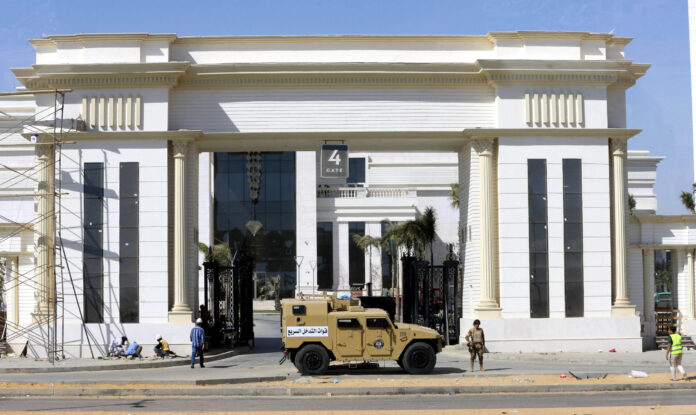Authors: Ishac Diwan, Nadim Houry, Yezid Sayigh
Affiliation: Paris Sciences et Lettres, Arab Reform Initiative, Carnegie Middle East Center
Organization/Publisher: Arab Reform Initiative
Date/Place: August 26,2020/ Paris, France
Type of Literature: Research Paper
Number of Pages: 37
Link:https://www.arab-reform.net/publication/egypt-after-the-coronavirus-back-to-square-one/
Keywords: Egypt, COVID-19, Military, Economy, Political Reform
Brief:
The authors analyze the Egyptian socio-economic situation and how the regime and its governance system are responding to the challenges imposed by the Covid-19 crisis. They comparatively discuss how the regime has managed the economy under Sisi’s rule with previous political systems, especially Mubarak’s era. They question if, and how, the current regime and its fragile economic system can handle the situation resulting from the Covid-19 crisis to maintain economic and political stability. The authors argue that “Egypt is now back to square one,” since the internal situation has turned out to be stable only on the surface; however, there are many economic structural deficiencies and social grievances that can lead to a close blowout. They identify three main sources of vulnerability that threaten the stability of the system: the macro stabilization of the economy without private sector participation, the militarization of the economy and its diminishing of the civilian role, and the lack of political space which increases social dissent. The paper presents the internal and external impacts of Covid-19 on the economic situation. The Egyptian economic system has shown to be weak and vulnerable because of the diminishing of foreign reserves, especially as its main sources of these reserves are remittances and tourism. Accordingly, the authors claim that Egypt can not continue without structural reforms. Economic stabilization without a dynamic private sector would not be enough to confront the impacts of the Covid-19 crisis on the economy. They justify the devaluation of the private sector by three main causes, which are political risk of the investment environment, incapability to be internationally competitive, and the intense competition with the military economy. They underline the militarization of the economy that has materialized, from managing major projects of public infrastructure and housing, producing a wide range of products for civilian consumption including health care, food and medication, to controlling imports and services. This expansion was pushed by political will and support from the ruling regime to guarantee the loyalty of the military. However, this expansion has led to the absence of efficiency and efficacy as well as unfair competition with the private sector because of the advantages and privileges that the military economy benefits from. Moreover, this army dominance of the economy has discouraged foreign investment. All in all, this leads to what the authors call “Egyptian state capitalism.” They then refer to the deteriorated social conditions and the rising percentage of Egyptians living under the poverty line that has occurred from cutting off the subsidies previously provided by the government. Egyptians additionally face eroding wages and diminishing public spending on health care and education. The authors highlight the lack of civic space and the Sisi regime’s repressing participation along with the increasing social grievances from the repression campaign, which initially targeted the Muslim Brotherhood but has become a broad campaign against activists and journalists. The regime holds full control over the media, has criminalized protests, and prevents any activist role of NGOs and labor unions. Finally, the authors recommend that the Egyptian regime change course to sustain its socio-economic stability by minimizing the role of the army in the economy. The Egyptian situation is in real need of a gradual top-down reform that opens the political space for participation to absorb any anticipated social explosion. On the other hand, international institutions and Western governments should initiate conversation with Egypt to encourage its economic and political reform.
By: Yomna Süleyman, CIGA Research Assistant




